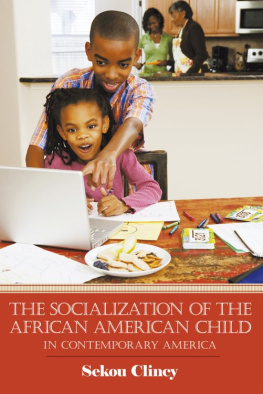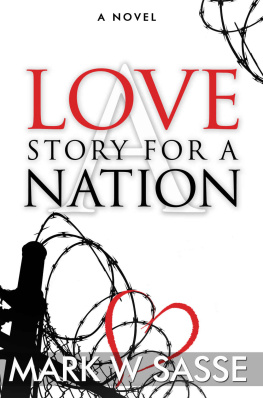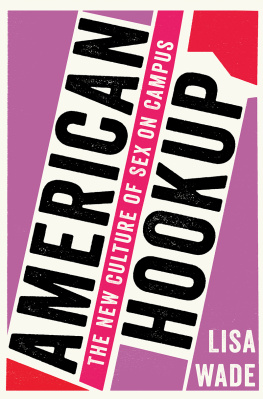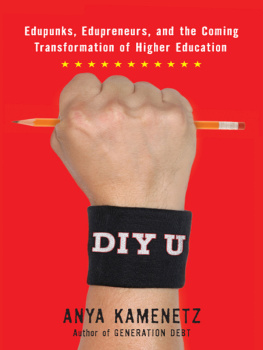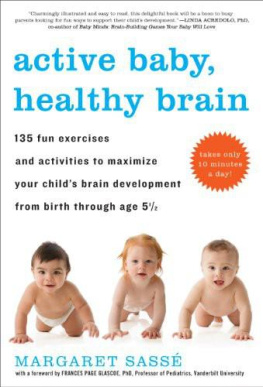The Vanishing American Adult
Our Coming-of-Age Crisisand How to Rebuild a Culture of Self-Reliance
Ben Sasse

St. Martins Press
New York
Thank you for buying this St. Martins Press ebook.
To receive special offers, bonus content, and info on new releases and other great reads, sign up for our newsletters.

Or visit us online at us.macmillan.com/newslettersignup
For email updates on the author, click here.
The author and publisher have provided this e-book to you for your personal use only. You may not make this e-book publicly available in any way. Copyright infringement is against the law. If you believe the copy of this e-book you are reading infringes on the authors copyright, please notify the publisher at: us.macmillanusa.com/piracy .
To Melissa McLeod Sasse, my lifelong partner in the world-changing work of nurturing little souls. For there is no higher calling than two becoming one to create a third.
We all know the noun adult. But I was perplexed last year to begin regularly hearing the new verb to adult. In social media, especially on Twitter and Instagram, it birthed a new hashtag as well: #adulting. As in: Doing laundry/dishes/cleaning my bathroom at midnight #adulting or Just paid this months bills on time #adulting or Decided I couldnt watch Netflix for 8 hours straight and went to the grocery store instead #adulting.
The new words use spiked so quickly that in 2016 the American Dialectic Society nominated adulting the most creative word construction in the entire English language. Alongside slang like YOLO (go for it, since you only live once) and politically correct neologisms like microaggression, the verb-ified version of adult is a totally new addition to our vocabulary.
For those unaccustomed to hearing this termthat is, actual adultsadulting is an ironic way of describing engagement in adult behaviors, like paying your taxes or getting super pumped about home appliancesyou know, the sort of mundane tasks and tools that responsibility demands. In other words, to a growing number of young Americans, acting like a grown-up is a kind of role-playing that can be thought of as a joke.
In a different time, there was decent clarity about what coming of age into adulthood meant. Leaving childhood and becoming an adult was conceptually clear. It was a gift that older generations gave to the younger. No longer. Ours is now an odd nation of both delayed grown-ups and adult-children who create words to mock the idea that we could ever become responsible, civic-minded leaders.
Before going any further, though, I want to puncture in advance a potential misunderstanding about this book. You might think youre about to hear a harrumph against the laziness of the rising generation or about stultifying helicopter parenting. Perhaps youre expecting a fiery harangue about taking away kids devices, kicking them out of the house, giving parents a spine... and all will be well.
Actually, you will hear very little Get off my lawn! screaming in these pages. There are few easy answers offered hereand this project isnt primarily about blaming anyone. Nor should you hear in these pages mere nostalgia for some lost golden age, for despite being a historian, I am more interested in the future than the past. Thus, the latter two-thirds of the book offer a gritty but constructive vision, drawn from our nations traditions, of how parents and grandparents can help build self-reliance into the rising generation going forward.
But first, we need to agree on the problem.
I believe our entire nation is in the midst of a collective coming-of-age crisis without parallel in our history. We are living in an America of perpetual adolescence. Our kids simply dont know what an adult is anymoreor how to become one. Many dont see a reason even to try. Perhaps more problematic, the older generations have forgotten that we need to plan to teach them. Its our fault more than it is theirs.
* * *
The idea for this book came when I began serving as president of a liberal arts college in my home state of Nebraska eight years ago. Early in my tenure at Midland University, a group of students in the athletic department was tasked with setting up a twenty-foot Christmas tree in the lobby of our basketball arena. These were hearty and healthy kids, 18- and 19-year-olds. They got the tree up, took out some decorations, dressed the tree, and began to leave, concluding that the job was done. That was when one of the universitys vice presidents happened by and noticed something odd. The Christmas tree was decorated only on the bottom seven or eight feet, on the branches the kids could easily reach.
Why, she asked, was the work only half done?
The head of a sorority replied, We couldnt figure out how to get the ornaments on the top.
Was there not a ladder in the gym? the vice president queried. Was maintenance unwilling to bring one?
She was met with shrugs. No one had bothered to look or thought to ask.
This days failure wasnt at all about lacking brains; it was about will. It was about ownership. It was about not having much experience or interest in seeing tasks through to completion.
This startled me. It worried me for the kids. Was this a problem unique to Midlands culture? I turned the scene over in my head, but I couldnt make sense of it. At the risk of sounding melodramatic, I simply couldnt reconcile the decision to leave while the work was still incomplete with how my parents had taught me to think about assignments. I couldnt conceptualize growing up without the compulsion first external compulsion, but over time, the more important internal and self-directed kind of compulsionto attempt and to finish hard things, even when I didnt want to.
Although I was only 37 at the time, I suddenly felt oldfor the very first timeand far more than two decades removed from my own arrival at college. Over my initial handful of months at the helm of Midland, I was noticing that students limited experience with hard work seemed to make them bizarrely fuzzy-headed when actual, real-world problems needed to be solved. They were regularly and troublingly flat-footed about situations in which smart, lively 18- to 22-year-olds should have had no difficulty leaning in and righting the world. But it turned out that the passivity wasnt at all unique to Midland. As Ive become more alert to this problem, I see the story repeated time and again, not only with college-age students but with pre- and post-college-age people as well.
For example, a friend recently shared that he and his wife have become increasingly worried about their kids. They have a 10-year-old boy and a 14-year-old girl who are, by almost any measure, dream kids. They are respectful toward adults, have good friendship networks, work diligently at school, and get top grades. Other parents often comment on how they wish their kids were more like my friends. But he and his wife are focused on behavior that occurs at home outside the public gaze, namely, their 10-year-olds obsession with YouTube and their 14-year-olds penchant for spending endless hours paging through social media updates and re-watching episodes of The Office.
This probably sounds familiar to most parents, but my friends angst stung more when he explained the primary reason why he and his wife have begun to worry. Sure, like all of us they are concerned about screen time being addictive and changing kids brains. They worry that social media can produce bullying or depression. But their ache is deeper: They are scared of a behavioral change theyre observing. Theyve noticed that all of this screen time seems to imbue their kids with a zombie-like passivity. They detect a decline of agency, of initiative, of liveliness.
Next page


